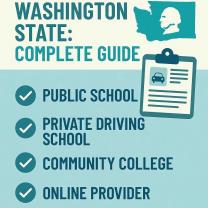How to improve listening and speaking skills in English?
In the dynamic world of global communication,English listening and speaking skills are not just valuable; they are the core of real-world interaction. Imagine being able to confidently understand a native speaker in a bustling café, or express your ideas clearly in a business meeting. These abilities unlock countless opportunities, both personal and professional.
Many English learners, despite diligently studying grammar rules and memorizing vocabulary lists, still struggle to fully understand native speakers or articulate their thoughts fluently. This gap often stems from a lack of focused practice on the two most active components of language: listening and speaking. You might know what to say, but struggle with how to say it, or how to comprehend rapidly spoken English.
This article is designed to bridge that gap. We promise to provide you with actionable strategies, engaging exercises, and modern tools that can significantly boost your English communication skills effectively. Whether you're a complete beginner or an intermediate learner aiming for fluency, prepare to discover practical ways to enhance your listening comprehension, build speaking confidence, and achieve greater clarity in your English journey.
How Can You Improve Listening Skills in English?
Effective listening is more than just hearing words; it's about active comprehension – understanding the message, context, and speaker's intent. To improve English listening and speaking effectively, you must first master the art of listening.
1. The Importance of Active Listening
Active listening means engaging with what you hear, not just letting it wash over you. Focus on:
Context: What is the topic? Who is speaking? Where are they? This helps you predict what might be said.
Keywords: Pick out the most important nouns and verbs that carry the main meaning.
Tone and Intonation: These convey emotions and emphasis, which can change the meaning of words.
Intent: Why is the speaker saying this? What do they want to achieve?
2. Diversify Your Listening Sources
Consistent exposure to various types of English spoken at different speeds and accents is crucial.
Podcasts: Listen to podcasts on topics you enjoy (e.g., crime, comedy, science, news). This makes learning enjoyable and sustainable.Example: '6 Minute English' from BBC Learning English for beginners, or 'The Daily' from The New York Times for advanced learners.
English Movies and TV Shows: Start with subtitles in English, then try without. Choose genres you like. This helps with colloquialisms and natural speech patterns.
TED Talks: Excellent for academic and professional vocabulary, clear articulation, and diverse topics. You can also re-watch sections and take notes.
English News: Follow daily news (e.g., BBC, CNN, NPR). News presenters often speak clearly, which is great for comprehension, and it keeps you updated on current events.
Audiobooks: A fantastic way to combine reading with listening, especially if you have the text version.
3. Practice Active Listening Techniques
Shadowing: This technique involves listening to a short segment of English audio and immediately repeating it aloud, trying to match the speaker's rhythm, intonation, and speed. This helps build muscle memory for pronunciation.
Transcription Practice: Listen to a short audio clip (1-2 minutes) and try to write down everything you hear. Then check your transcription against the original text. This highlights exactly what you're missing.
Listen to Various Accents: Don't limit yourself to just American or British English. Explore Australian, Canadian, Irish, etc. This broadens your understanding and adaptability.
Key takeaway: Consistency and broad exposure are far more effective than infrequent, long study sessions. Aim for daily listening, even if it’s just 15-20 minutes.
How Can You Enhance Speaking Skills in English?
Developing strong English communication skills hinges on regular speaking practice. It's about building confidence, achieving fluency, and ensuring clarity so your message is understood.
1. Build Confidence and Overcome Fear
Daily Speaking Practice: Even if you're talking to yourself, speak English every day. Describe your surroundings, narrate your actions, or simply voice your thoughts in English.
Record Yourself: Use your phone to record your voice while speaking English. Listen back to identify pronunciation issues, grammatical errors, and areas where you hesitate. It can feel awkward, but it's incredibly effective.
Join English Clubs or Online Conversation Groups: Find local English speaking clubs or online platforms dedicated to language exchange (e.g., Meetup, university groups). Interacting with real people builds confidence and provides natural practice.
2. Focus on Fluency and Clarity
Imitate Native Speakers: Listen to how native speakers phrase sentences, use idioms, and manage their rhythm and intonation. Try to mimic these patterns in your own speech. This helps you sound more natural and less like you're translating directly from your native language.
Think in English: One of the biggest obstacles to fluency is translating in your head from your native language. Consciously try to form thoughts directly in English. Start with simple tasks: label objects around you in English, plan your day's activities in English. This reduces translation delays and improves natural sentence construction.
Learn "Filler" Words and Phrases: Natural speech often includes short filler words (e.g., "uhm," "like," "you know") or discourse markers ("actually," "well," "so"). Learning to use these sparingly and naturally can make your speech sound more fluent and less robotic.
3. Seek Opportunities to Speak
Practice with Friends or Colleagues: If you have English-speaking friends or colleagues, ask them to converse with you in English. Don't be afraid to make mistakes – that's how you learn!
Role-Playing: Practice common scenarios (ordering food, asking for directions, explaining a project) with a partner or even by yourself.
Key takeaway: Don't wait for perfection to start speaking. The more you speak, the more fluent and confident you will become.
What Are Effective Exercises for English Listening and Speaking?
The most effective approach to improve English listening and speaking is to combine both skills in integrated exercises. This simulates real-life communication more closely.
1. Integrated Listening and Speaking Practice
Shadowing (again!): As mentioned, this is powerful. You're actively listening and then immediately producing speech.
Role-Playing: Pick a scenario (e.g., ordering coffee, a job interview, a debate about a social issue) and practice both parts. You can do this with a partner or even record yourself playing both roles.
Retelling Stories/Summarizing Audio: Listen to a short story, news report, or podcast. Then, without looking at the transcript, try to retell the story or summarize the main points in your own words. This forces you to comprehend and then express.
Describing Images/Videos: Find an interesting image or short video clip. Describe what you see, what's happening, and what you think about it, all in English. This builds descriptive vocabulary and spontaneous speech.
2. Interactive and Repetitive Exercises
Listening Quizzes: Many online resources offer listening comprehension quizzes. These help you test your understanding of specific details.
Pronunciation Drills: Focus on tricky sounds. Use online resources that provide minimal pairs (e.g., 'ship' vs. 'sheep') and practice them repeatedly.
Daily Voice Challenges: Look for platforms or apps that give you daily prompts or questions to answer aloud. This encourages consistent, low-pressure speaking.
3. Sample Daily Routine (Adapt to your level)
30 minutes Listening Practice:
10 minutes: News podcast or TED Talk (active listening for keywords).
10 minutes: Your favorite English TV show (with English subtitles if needed).
10 minutes: Shadowing a short audio clip or podcast segment.
15 minutes Speaking Practice:
5 minutes: Describe your morning routine or plan your day in English (talking to yourself).
5 minutes: Record yourself answering a prompt or retelling a short story.
5 minutes: Practicing pronunciation drills for challenging sounds.
4. Use English in Real-Life Situations
Order Food/Drinks in English: If you're in an English-speaking environment.
Talk to AI/Chat Partners: Use tools like ChatGPT or other AI language partners to have conversational practice. They won't judge your mistakes!
Think Out Loud: When you're making a decision or planning something, try to vocalize your thoughts in English.
Key takeaway: Consistent engagement with varied exercises that combine listening and speaking is the fastest route to fluency. Don't be afraid to experiment and find what works best for you.
How Do Pronunciation and Accent Affect Communication?
When you how to practice English speaking, it's natural to wonder about pronunciation and accent. These elements play a significant role in how clearly your message is received and understood.
1. Pronunciation Influences Clarity
Clarity is Key: Good pronunciation means that the individual sounds of words, word stress, and sentence intonation are clear enough for a listener to understand you without effort. Poor pronunciation can lead to misunderstandings, even if your grammar and vocabulary are perfect.
Word Stress: Placing stress on the correct syllable within a word (e.g., 'present' as a noun vs. 'present' as a verb) changes its meaning and helps comprehension.
Sentence Stress and Intonation: These convey meaning and emotion. For instance, rising intonation for a question, or falling intonation for a statement. Connected speech (how words link together) also influences naturalness.
2. Accent vs. Pronunciation
Accent is Natural: Everyone has an accent, even native speakers. A slight foreign accent is natural and often charming; it's a part of your linguistic identity. The goal is not to eliminate your accent, but to ensure it doesn't hinder clarity.
Poor Pronunciation Causes Confusion: The problem arises when your accent leads to mispronouncing sounds or stress patterns in a way that makes words unintelligible or changes their meaning for a native speaker.
3. Tips for Improving Pronunciation
Focus on Individual Sounds: Identify sounds in English that are not present in your native language or are pronounced differently. Use phonetic charts.
Master Word Stress: Listen carefully to how words are pronounced by native speakers and try to imitate the stress patterns.
Practice Intonation and Rhythm: Pay attention to the "music" of English – how the pitch of your voice rises and falls, and how stressed and unstressed syllables create rhythm.
Connected Speech: Notice how native speakers link words together (e.g., "an apple" sounds like "anapple"). Practice this to sound more natural.
4. Recommended Tools for Pronunciation
YouGlish: Type in any word or phrase, and YouGlish shows you how it's pronounced in real YouTube videos by native speakers, across various accents.
Forvo: A vast database of words pronounced by native speakers in different languages, including English with various accents.
ELSA Speak: An AI-powered app specifically designed to give feedback on pronunciation, comparing your speech to native speakers.
Phonetic Transcription Practice: Learn the International Phonetic Alphabet (IPA) to understand how sounds are truly formed, not just how words are spelled.
Key takeaway: Prioritize clarity over eradicating your accent. Clear pronunciation ensures your message is effectively delivered.
How Can Technology Help Improve English Communication Skills?
In the digital age, technology is an indispensable ally for anyone looking to improve English listening and speaking and boost their overall English communication skills. It offers unprecedented access to resources, feedback, and practice opportunities.
1. Language-Learning Apps & Platforms
Duolingo, Babbel, Memrise: Great for vocabulary, grammar, and basic sentence structure. Many now include speaking exercises.
ELSA Speak / Speechling: These apps are specifically designed for pronunciation practice, using AI to give instant feedback on your spoken English, highlighting exact sounds you need to improve.
YouTube English Channels: A treasure trove of free resources! Channels like BBC Learning English, EnglishClass101, Rachel's English (for American accent), and EngVid offer lessons on grammar, vocabulary, pronunciation, and listening.
Podcasts: As mentioned before, podcasts offer diverse listening content for all levels.
2. AI-Based Feedback Tools
AI Pronunciation Feedback: Beyond ELSA Speak, many online speech analysis tools can evaluate your fluency, pronunciation, and even intonation, providing detailed reports to guide your practice.
ChatGPT/Bard/Other AI Chatbots: These can be incredible virtual conversation partners. You can ask them to role-play scenarios, correct your grammar, explain vocabulary, or simply chat about any topic in English. They're available 24/7 and won't judge!
3. Online Communities for Speaking Practice
Tandem / HelloTalk / Speaky: These language exchange apps connect you with native English speakers who are learning your native language, creating a mutually beneficial environment for conversation practice via text, voice notes, or calls.
Discord Servers / Facebook Groups: Many online communities are dedicated to English learners, offering opportunities to join voice chats, ask questions, and practice speaking in a supportive environment.
4. Immersive Learning Tools
Subtitles: When watching movies or videos, always use English subtitles (not your native language). This helps connect the spoken word with its written form, improving both listening and vocabulary.
Speech-to-Text Software: Use the speech-to-text function on your phone or computer. Speak English, and see if the software accurately transcribes what you said. This is a quick way to check your pronunciation and clarity.
Virtual Assistants (Siri, Google Assistant, Alexa): Practice giving commands or asking questions in English. If the assistant understands you, your pronunciation is likely good! This is a low-pressure way to practice speaking.
Online Dictionaries with Audio: Always check the pronunciation of new words using online dictionaries that provide audio examples.
Key takeaway: Integrate technology into your daily routine. It offers personalized feedback, diverse content, and endless practice partners, accelerating your journey to fluency.
FAQ Section:
How long does it take to speak English fluently?
Fluency is a journey, not a destination, and it varies greatly by individual. Factors include your starting level, consistency of practice, immersion level, and motivation. Generally, with dedicated daily practice (1-2 hours), a beginner might reach conversational fluency in 1-2 years, while advanced learners might achieve near-native fluency in 3-5 years or more. Focus on consistent progress rather than a fixed timeline.
Should I learn British or American pronunciation?
It's entirely up to you and your goals! Both are widely understood globally.
Choose based on exposure: If you primarily consume American movies/TV or plan to work in the US, then American pronunciation might be more practical. The same applies to British English if your interests or goals align with the UK.
Consistency is key: Once you lean towards one, try to be consistent with it for individual sounds, stress, and intonation, as mixing too much can sometimes be confusing. However, slight variations are normal and acceptable.
Can I improve English without a speaking partner?
Yes, you absolutely can! While a speaking partner is beneficial, it's not essential. You can greatly improve English listening and speaking by:
Recording yourself: This is like being your own partner for feedback.
Thinking and talking to yourself in English: Narrate your day, describe things around you.
Using AI chatbots: ChatGPT, Bard, etc., are excellent, non-judgmental conversation partners.
Shadowing native speakers: Mimic audio from podcasts, movies, or TED Talks.
Utilizing speech-to-text software: To check clarity.
Joining online forums/Discord servers: For voice chats and group discussions.
What are the best YouTube channels for English listening practice?
Some of the best YouTube channels for English listening practice include:
BBC Learning English: Excellent for all levels, offering news, grammar, and pronunciation.
TED / TEDx Talks: Great for advanced vocabulary and diverse topics, often with clear speakers.
EnglishClass101: Covers a wide range of topics and levels with clear explanations.
Rachel's English: Specifically focuses on American English pronunciation and connected speech.
EngVid: Features many different teachers covering various aspects of English learning.
VOA Learning English: Uses simplified English for news and features, great for intermediate learners.
Conclusion:
Mastering English listening and speaking skills is an achievable goal for any dedicated learner. The key lies in understanding that effective communication isn't just about grammar or vocabulary; it's about actively engaging with the language through consistent practice. By employing strategies such as active listening, daily speaking, and leveraging modern technological tools, you can significantly accelerate your journey towards fluency.
Remember to treat every mistake as a valuable learning opportunity, not a failure. Fluency grows from consistent, enjoyable practice and courageous experimentation, not from the elusive pursuit of perfection. Embrace the vast resources available, find what makes learning fun for you, and keep pushing your boundaries. The next fluent conversation is just consistent practice away.














ConfidentSpeaker
on October 11, 2025The tip about recording yourself to check for mistakes is brutal but necessary for boosting speaking confidence. I need to treat those mistakes as learning opportunities.
IntonationGuru
on October 11, 2025Connected speech and intonation are what make native speakers sound so fast. I'll be using YouGlish more to understand the natural flow of English communication.